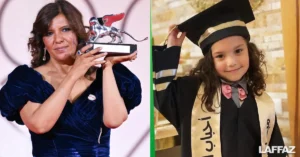When India’s women’s cricket team lifted the World Cup trophy, one of the loudest cheers came from Mandira Bedi, an actor, television personality, and one of the earliest female faces in cricket broadcasting.
“I can’t get over the win,” said Mandira Bedi, describing it as the result of years of perseverance and progress. “To just 20-25 people in the stadiums for their tournaments all these years to a full house at DY Patil Stadium, after a comprehensive defeat against Australia and then South Africa, the Indian women’s cricket team has come a long way. I feel so proud and joyful to see them setting milestones for women’s sport in the country.”
Mandira admits she’s still processing the magnitude of the moment.
“The feeling is settling slowly,” she said. “Seeing them everywhere, getting the recognition they truly deserve, becoming household names, and receiving the rewards they’ve earned, it’s heartwarming.”
The forgotten story of Mandira’s early support
Back in the early 2000s, when women’s cricket struggled for visibility and funds, Mandira quietly stepped in to support the team. Between 2003 and 2005, she contributed from her own income to help the women’s team when resources were scarce.
“This news has made me a bit embarrassed because it’s two decades old,” Bedi confesses. “The team needed help at that time, and I just did what I could with whatever funds I had.”
What few people know is that Mandira not only contributed financially but also gave up her own endorsement fee to keep the game alive. As the face of Asmi Jewellery at the time, she convinced both Asmi and Infosys to step in as sponsors – ensuring the Indian women’s team had the means to train and travel. Her quiet act of solidarity kept the sport afloat long enough for India to reach the 2005 World Cup final.
Her support might have gone unseen, but its impact endures. Today, as millions celebrate the team’s historic win, Mandira’s early efforts stand as a reminder that change often begins behind the scenes.
Fighting barriers on and off the field
Mandira’s story extends far beyond her contribution to cricket. Known to many as Preeti from the popular Dilwale Dulhania Le Jayenge film, she broke stereotypes to become one of India’s first female sports presenters. From hosting the ICC World Cups, Champions Trophies, and IPL tournaments, she brought a fresh, confident voice to a male-dominated arena.
But the journey wasn’t easy. During her time in sports broadcasting, she was dismissed as “eye candy” and often ignored by senior panelists. Still, she persisted – studying every statistic, strategy, and player detail to command respect through skill, not appearance.
In an interview with The Indian Express, in April, Mandira denoted,
“I felt dismissed and I felt disrespected. I felt powerless and I felt like I don’t know what am I doing here. I questioned myself and belittled myself saying, ‘It must be me’.”
Beyond cricket: Redefining strength and mental health
Over the years, Mandira has also used her voice to normalize conversations around pain, healing, and mental health. From battling postpartum depression to coping with the loss of her husband, she’s been open about her struggles. In May 2025, she co-founded a mental awareness programme, where she discusses mental health through her personal social media, interviews, and collaborations.
Through her honesty, she’s made conversations around grief, stress, and resilience more human. Her journey reflects a different kind of strength, one that lifts others up.
The legacy of quiet power
Mandira Bedi didn’t just help India’s women cricketers take the field, she helped them believe they belonged there. Her early contributions, empathy, and persistence paved the way for a new generation of women in sports to dream bigger.
As India celebrates this historic World Cup win, Mandira’s story stands as a powerful reminder that progress isn’t only about those on the field, it’s also about those who quietly made it possible.






